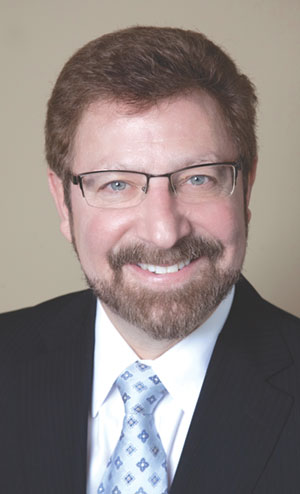The current review of the scope of paralegal practice by the Law Society of Upper Canada will consider paralegals’ role in the real estate community.

While paralegals are hopeful for a modest expansion into the area, members of the bar remain firmly opposed to what they consider to be a reduction in standards for no real public benefit.
When Treasurer Laurie Pawlitza told Convocation at its February meeting that there would be a review into the scope of paralegal practice, much of the reaction focused on concerns with the family law bar, but the issue is just as big a can of worms among real estate lawyers.
The starting point for the review is to be the recommendations of former Supreme Court justice Peter Cory in his 2000 report on regulating paralegal practice in Ontario.
The report included two recommendations relating to real estate practice. The first was that paralegals should be able to appear on an appeal in the first instance from a decision of the former rental housing tribunal upon passing a special examination or a comprehensive course.
The law society’s position at the time was that licensed paralegals should appear on appeals on a question of fact alone to another board, tribunal or the Ontario Court of Justice but not the Superior or Divisional courts.
It took the view that a question of mixed fact and law required more extensive and comprehensive education than that proposed for paralegals.
The second recommendation was that licensed paralegals should be able to act for a vendor on the sale of a residential property that’s either clear of any mortgage encumbrances or subject to only one mortgage.
The LSUC opposed this suggestion. It took the view that paralegals should be prohibited from practising in the area of real estate law.
“Because of the complexities of both title and non-title matters and the related skill sets required to address these matters, the public interest requires the involvement of a lawyer,” it said in its formal response.
Roy Thomas, director of communications at the LSUC, says the review panel isn’t committing to those recommendations specifically. Instead, it’s conducting a needs review. “In some cases, things have changed since 2000,” says Thomas. “It’s premature to be talking about specific areas.”
One of the biggest changes is that the law society has been regulating paralegals for the last few years. Another change is the advent of title insurance, which is generally seen as reducing the risk involved in real estate transactions.
“There are no barriers that the public would have to overcome to utilize paralegals,” says Chris Surowiak, president of the Paralegal Society of Ontario.
“There are now the same protections as for lawyers. Paralegals would have to prove they are competent to practise in real estate, as they do for immigration practice, which has been recently opened up to paralegals.”
Marshall Yarmus, the paralegal who proposed the motion that lead to the current review, hopes it will endorse some of Cory’s recommendations to allow paralegals to do some of the work in real estate, including “routine things like searches and registrations that law clerks normally do and not the lawyers themselves.”
The needs assessment will be an exercise to gauge the demand for paralegal services in real estate. In 2000, the law society’s research found that among the users of paralegal services, 25 per cent said they’d use a paralegal in real estate matters and 69 per cent said they’d retain a lawyer.
Among lawyers’ clientele, 18 per cent said they’d use a paralegal for real estate work, while 80 per cent preferred a lawyer.
From these figures, the law society concluded there was no real need for paralegals to practise in the area, a sentiment echoed for other reasons by Steven Pearlstein of Minden Gross LLP.
“The real push for paralegal services from a public standpoint is accessibility to professionals and keeping costs down,” he says. “Unlike other areas, there’s an overabundant supply of lawyers doing real estate.
They’re a dime a dozen, and there’s no upward pressure on the cost. The price of legal fees on a real estate transaction has stayed roughly the same for the last 30 years.”
Pearlstein questions Cory’s suggestion that paralegals should do simple sales. “How do you know if it’s simple until you get into it? How many different areas of law do you deal with in a real estate transaction? It’s a serious and complicated transaction.”
Pearlstein has observed that title insurers try to do simple transactions but keep running into problems they need help with. “While a large proportion of transactions do go smoothly, you won’t know if you need a lawyer until you’re into the transaction. Then it’s too late.”
Pearlstein agrees that things have changed since Cory’s report, but he and his colleagues are still opposed to any paralegal involvement in real estate practice at all. “Title insurance is not the panacea that everybody thinks it is. There are lots of things it doesn’t cover.
In the latest residential transaction I did, I found two new exemptions in the title insurance policy. Also, people don’t fully understand title insurance. It’s one of the things a lawyer has to explain.”

 While paralegals are hopeful for a modest expansion into the area, members of the bar remain firmly opposed to what they consider to be a reduction in standards for no real public benefit.
While paralegals are hopeful for a modest expansion into the area, members of the bar remain firmly opposed to what they consider to be a reduction in standards for no real public benefit.